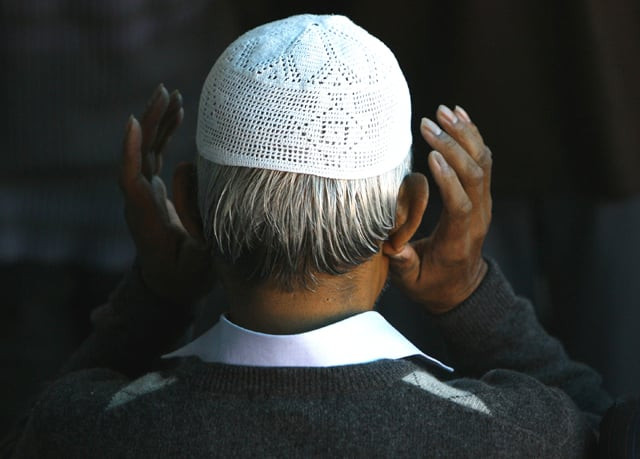Eid in difficult days
Let us hope that this Eid we use the occasion to reflect on what has become of us, what we can do for a better future.

The facts are staring us in the face. There is violence in our land and it is borne out of external factors as well internal ones. The killers linked to international terror murder innocent Pakistanis, a stark example of how Muslims have killed Muslims in history, no matter how much the ‘deep state’ insists it is not al Qaeda but Americans and Indians. In Karachi, which is now a miniature of Pakistan’s national travail, the stakeholders of governance are killing one another to eclipse the cruelties of al Qaeda and its local affiliates.
Eid is a collective festival and during its celebration one would assume that friends as well as rivals will embrace one another and remember that they are brethren in faith and that acts of omission and commission have to be forgiven. But the truth is that this one day will not change the ground realities of divisions among us; will not make friends of those who torture and cut up people to stuff their bodies in bags and their victims. One wonders if religion has lost its binding power, especially given the killing spree that went on through Ramazan in Karachi.
The state has wound down in the past decade or so and that includes the decade of Musharraf’s years of high economic growth rates. As the economy contracts under unavoidable IMF conditionalities, more and more people are unemployed and those still employed find it hard to take the shock of rising prices. The services the state is expected to provide have gradually dwindled and come to a halt in some areas. It is not safe to travel by road because the roads are no longer protected. The mass transit system of the railways has become dysfunctional and subject to violence by helplessly suffering passengers.
The terrorist who has joined hands with al Qaeda kills with impunity and no remorse during Ramazan because the prayer congregation is a sitting duck. He fasts while killing others and joins the very people he kills in the prayers of Eid, that is, if he is not blowing up innocents on Eid day. Those who look at this mayhem are divided on what to make of the phenomenon. The thinking of the killer has seeped into the minds of the victim population. Those who kill and those who are getting killed are on the same page with their isolationist rage against America and the West.
Extremism has been embraced at a time when it should have been shunned in the face of the ‘khariji’ philosophy of al Qaeda. The common man is encouraged by the pulpit, the TV anchor, and the column-writer to hate those who do not agree with this uniformity of the extreme mind. Hate speech is being used, not against al Qaeda and its ‘fitna’ but against fellow-Pakistanis who dare to think differently. The security forces are not spared by this penetration of poisoned thinking. But as one says this, one is made to realise that the state is no longer able to defend the police in Karachi against the killing spree of the mafias. In old times, the state would have come to an end, but in the 21st century the failing post-colonial state in Asia, Africa and the Middle East has lingered in the midst of unspeakable public suffering. Let us hope that this Eid day we use the occasion to reflect on what has become of us and what we can do for a better future. Atleast we can try and make it a memorable day for our younger generations.
Published in The Express Tribune, August 31st, 2011.















COMMENTS
Comments are moderated and generally will be posted if they are on-topic and not abusive.
For more information, please see our Comments FAQ